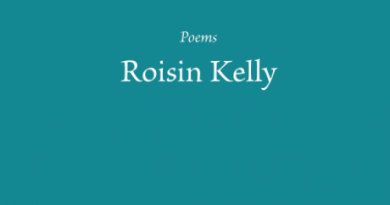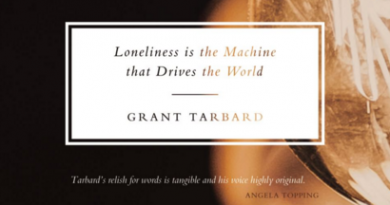The Golden Rule by Ernest Noyes Brookings
– Reviewed by Humphrey Astley –
Everyone likes a good backstory, especially if it informs or enriches one’s understanding of an artist. The question is: how much should an artist’s biography be factored into a serious appraisal of their work? The Barthesian in me says that it probably shouldn’t factor at all, but in some cases the circumstances are hard to ignore. The Golden Rule, by the late North American poet Ernest Noyes Brookings, is such a case.
Born in Newbury, Massachusetts in 1898, Brookings didn’t put pen to paper until 1980, when he took up residence at a Boston nursing home. For the next (and last) seven years of his life he produced hundreds of poems, seemingly for the sheer hell of it, enjoying only a small (if enthusiastic) readership. That he pursued this discipline so late in life is impressive, but on a purely technical level, his naif approach to poetry had very mixed results.
Every one of the poems in The Golden Rule is written in abab quatrains, a method in which Brookings seemed to have absolute faith. This kind of obsessive production is not unheard of (even now: look at Michael Symmons Roberts’ Drysalter, for example) but Brookings’ devotion to the form arguably made him lose focus as much as it helped him achieve it.
In ‘The Eiffel Tower’, the structure is described as ‘From the distance a clear and high glittering tower / At times partially hidden by a low dense fog / All agree that God has the power / To change it into a deep enveloping smog’. The way in which Brookings drops one subject and picks up another within a single stanza would be fine, if it didn’t seem so arbitrary: he’s letting the rhymes dictate the direction of his poem, and not for the sake of some high-minded surrealism; the words merely fit.
Elsewhere, however, he wins back trust with diction that is genuinely surprising, and surprising on the poet’s own terms: ‘It is contained in the age of all human octogenarians / During when their life’s many activities / Is there a dry unoccupied aquarium? / Which may be refilled with fish and tranquility.’ OK, it’s not Plath, but there’s a sense in which Brookings really chose the aquarium to represent something, to evoke tranquility. The vision is opaque, but it’s a vision nonetheless.
Superficially, Brookings shares quite a few stylistic features (broken syntax, loose punctuation, etc.) with e. e. cummings, though they surely had little in common in terms of poetics. Cummings’ style may have appeared childlike and unintellectual but it was (in the best sense) affected: he crafted that style. To Brookings, ‘craft’ probably meant sitting down and doing the damn work with as little fuss as possible.
‘Why I Write Poetry’ gives some insight into his approach, though it’s typically tangential: ‘Because it’s an enjoyable natural hobby / To be read by all local inhabitants / Could a cat catch a four-legged bobby? / Or a baby wet its folded diaper pants?’ Or perhaps this only seems tangential; perhaps Brookings is trying to say that writing poetry comes as naturally to him as soiling a nappy does to a baby (cf. Bukowski: ‘Poetry is a warm beer shit’).
The same piece gives the collection its title: ‘Suppose the teacher in a local grade school / Was reading one of my poems to the class / They always obey the old golden rule / Occasionally attend a religious mass’. There’s subtle wit at work here; there may even be the idea that art should pay deference to tradition, though Brookings’ own work (in spite of its relentless formalism) could hardly be called conventional.
There can’t be many poets whose subjects ostensibly include everything from ‘Sneezes and Coughs’ to ‘Sharks’, ‘Romeo and Juliet’, ‘Eggs’, ‘Rolling Stone’ and ‘Planning and Completing an Explorative Trip to Planet Mars’. However, there’s a reason for this: while no subject is strictly ‘off-limits’, some subjects probably aren’t worth discussing.
Does Brookings care? No. His work has the irrepressible momentum of an autodidact-cum-idiot-savant who believes that the poem-writing act itself will transform his subject into gold. It’s poetry without an agenda, which is likely to appeal to anyone who thinks that the pursuit of ‘literariness’ is a red herring. And a consideration of Brookings’ backstory does to some extent inform and enrich an appreciation of his poems: picture him at a makeshift desk in a room in a nursing home, churning out unruly verses day in, day out, just because he can. It’s a pretty great image, but few are likely to read these poems with the same dedication with which Brookings wrote them.





